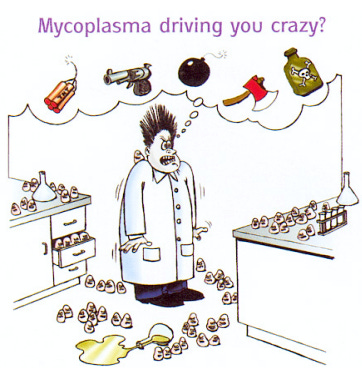The Latest on the (Possibly) Novel Dog Pneumonia
What we know, what we don't, and how to keep your dog safe
In the summer of 2022 reports of dogs getting sick with a treatment resistant infection started to circulate. It then died down for a little bit but we are now seeing a resurgence with cases being reported across the United States.
Veterinarians around the United States are puzzled. They have followed standard diagnostic procedures, sending samples from sick pets out for genetic sequencing and culture but these tests have repeatedly failed to identify a pathogen. No genetic sequences of common pathogens have been found, and samples have failed to develop into a culture by standard methods. This is bad news as the mystery illness continues to harm and even kill dogs. Some dogs take months to recover and are plagued with a lingering cough.
Although it seems to be spread from dog to dog, transmission is not always linked to contact between dogs. Dogs that were not directly exposed to other sick dogs have fallen ill indicating that the pathogen can survive in an environment where a sick dog was recently.
Dr. David Needle DVM, DIPL. ACVP of University of New Hampshire may have found the first clue.
Sequencing material from 70 sick dogs Dr. Needle was unable to identify any known viruses, bacteria, or fungal sequences that cause illness in dogs. What he did find was a snippet of DNA that is similar to that found in mycoplasma species.
Mycoplasma is a type of bacteria family that can infect multiple species, it has no cell wall and is difficult to kill, even on surfaces, even with drying (successful disinfection approaches are outlined below).
It has not yet been confirmed if a new (or known) mycoplasma bacterium is responsible for illness in dogs but it may fit the profile. Mycoplasma are small bacterium that are difficult to culture and do not have cell walls and are therefore resistant to beta-lactam based antibiotics. Beta-lactam based antibiotics include penicillin and it’s derivatives, cephalosporins, cephamycins (cephems), monobactams, carbapenems, and carbacephems. Mycoplasma are also resistant to vancomycins and teicoplanins.
In human infections with mycoplasma tetracyclines (tetracycline, doxycycline, and minocycline) are often recommended (except for pregnant women and neonates).
This may explain reports that occasionally the mystery infection is responsive to antibiotics. It may depend on which antibiotic is used.
To date there are no reports of human acquired infection from sick dogs and indeed mycoplasma can be species specific.
Despite this promising lead the pathogen has yet to be confirmed.
Many veterinarians are recommending that you avoid boarding your dog and bringing your dog to places where other dogs may congregate. Because the pathogen may be transmitted in the environment going to a dog park at low traffic times may not necessarily be helpful.
If it is mycoplasma, this pathogen can live for several days, even weeks at room temperature outside of the body and is resistant to drying. In fact it can be so pervasive that a print out of this cartoon was stuck to several of my graduate school lab incubators as a nod to the frustration and reminder to be extremely diligent about cleaning procedures.
Ammonium based cleaners are ineffective against mycoplasma but bleach and hydrogen peroxide based cleaners show better efficacy. Be sure to have a conversation about sterilization procedures with your groomer and anyone else that may be caring for your pet to help reduce spread. Typically a 10% bleach based solution left on a surface for 10 minutes or longer will kill the vast majority of known pathogens.
If your dog does fall ill with this mystery pathogen talk to your veterinarian immediately about ways to make your dog more comfortable and possible treatment approaches.
I personally have stopped taking my dog to our local dog parks but will still go on walks and hikes.
Hopefully the pathogen will be identified soon. I know it may sound scary but with a few precautions likelihood of infection can be minimized.
Wishing you and your pup(s) a safe and healthy holiday season.






I hope this gets resolved ASAP
Thank you for this. We have been very worried because we have two older small breed dogs. This at least gives us an idea of what’s going on. They don’t really go around other dogs and they don’t go to a groomer, but we’ll probably skip any type of holiday pet events.